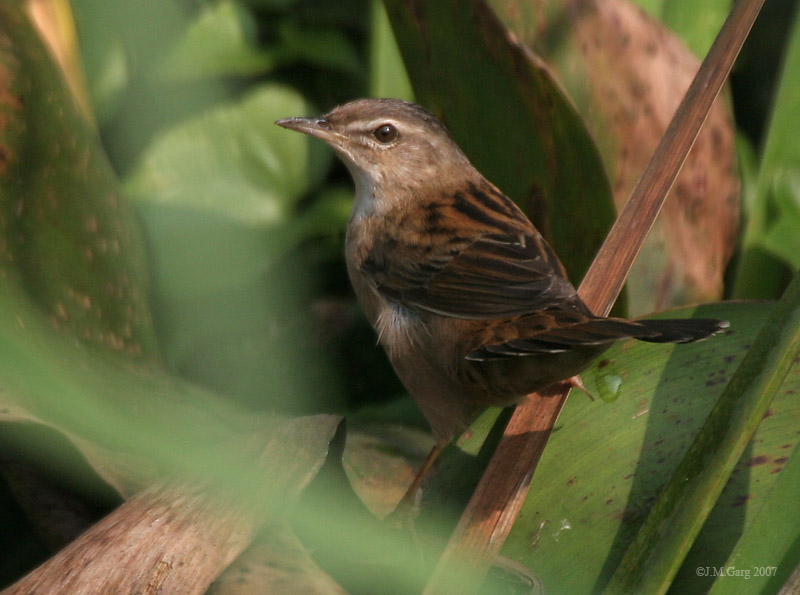|
| Query: Rusty-rumped warbler | Result: 2nd of 2 | |
Pallas's Grasshopper-warbler (Locustella certhiola) - Wiki
| Subject: | Pallas's Grasshopper-warbler (Locustella certhiola) - Wiki
| |

| Resolution: 800x595
File Size: 129666 Bytes
Date: 2007:02:10 09:30:20
Camera: Canon EOS 350D DIGITAL (Canon)
F number: f/6.3
Exposure: 1/400 sec
Focal Length: 500/1
Upload Date: 2008:01:09 10:29:35
|
Pallas's Grasshopper-warbler
From Wikipedia, the free encyclopedia
Order: Passeriformes
Family: Sylviidae
[Photo] Pallas's Grasshopper-warbler or Rusty-rumped Warbler (Locustella certhiola) in Kolkata, West Bengal, India. Date 10.2.07. Author: J.M.Garg (http://commons.wikimedia.org/wiki/User:J.M.Garg). Copyright (C) 2007 J. M. Garg
Permission is granted to copy, distribute and/or modify this document under the terms of the GNU Free Documentation License, Version 1.2 or any later version published by the Free Software Foundation; with no Invariant Sections, no Front-Cover Texts, and no Back-Cover Texts. A copy of the license is included in the section entitled "GNU Free Documentation License". |
The Pallas's Grasshopper Warbler, Locustella certhiola, is an Old World warbler in the grass warbler genus Locustella. It breeds in east Asia. It is migratory, wintering from India east to Indonesia.
This small passerine bird is a species found in tall grass with some thicker vegetation, usually close to water in bogs or wet meadows. From 4 to 7 eggs are laid in a nest on the ground in grass. This species is a very rare vagrant to western Europe. One of the best places to see this skulking species as a vagrant is Fair Isle, Shetland; for a species that only rarely appears in western Europe, it can be found there with some regularity. This has made it a popular species among UK "twitchers" in whose jargon it is known as "PG Tips".
This is a medium-sized warbler. The adult has a streaked brown back, whitish grey underparts, unstreaked except on the undertail. The sexes are identical, as with most warblers, but young birds are yellower below. Like most warblers, it is insectivorous. It is very similar to the Grasshopper Warbler, but is slightly larger, has white tips to the tail and tertial feathers, and a warmer brown rump.
This is a skulky species which is very difficult to see except sometimes when singing. It creeps through grass and low foliage.
The song is not the mechanical insect-like reeling produced by the Grasshopper Warbler and some other Locustella warblers, but an inventive Acrocephalus-like melody.
This bird was named after the German zoologist Peter Simon Pallas.
Note that the sixth edition of Clements checklist refers to this species as "Pallas's Warbler", a name more commonly used for Phylloscopus proregulus.
http://en.wikipedia.org/wiki/Pallas's_Grasshopper-warbler
| The text in this page is based on the copyrighted Wikipedia article shown in above URL. It is used under the GNU Free Documentation License. You may redistribute it, verbatim or modified, providing that you comply with the terms of the GFDL. |
|
^o^
Animal Pictures Archive for smart phones
^o^
|
|

